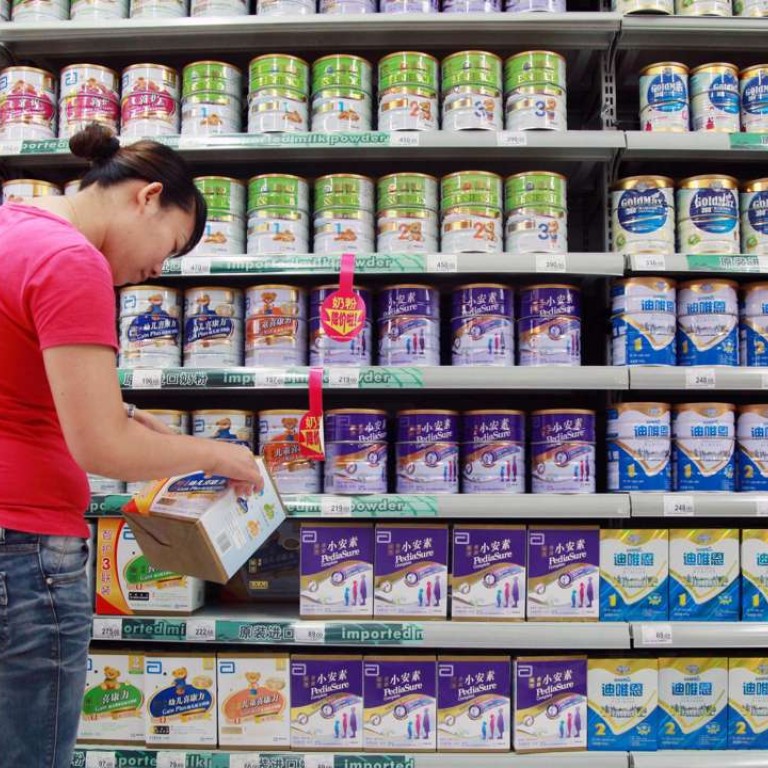
Regulation intensifies competition on China’s baby-milk powder market
China’s infant milk powder makers face white-hot competition ahead of tighter regulation and challenges from foreign brands and e-commerce.
China’s infant milk powder makers are facing white-hot competition because of tighter regulations, challenges from foreign brands and e-commerce channels.
“Domestic milk powder makers are under great de-stocking and price cut pressure,” Summer Wang, consumer sector analyst at BOCOM International said. “The primary reason is the coming registration-based system set by the government,”
The China Food and Drug Administration (CFDA) in September released a draft notice. It said it would allow each milk-powder manufacturer to produce five categories of infant formula. Each category consists of just three products, all of which must be registered.
A further notice from the CFDA decreased the quota to three catagories.
“Manufacturers with more than nine products have only 18 months to clear their inventories. That created industry wide de-stocking and downward price pressure. It created intense competition,” Wang said.
The rule takes effect on January 1, 2018, although details are to be confirmed.
Manufacturers with more than nine products have only 18 months to clear their inventories
Biostime, a Guangdong-based milk powder maker, saw revenue from its baby nutrition and care products fall 12.8 per cent in the first quarter year-on-year, according to its filing to the Hong Kong bourse.
Revenue losses mainly stem from infant milk formula products and accounted for 85 per cent of Biostime’s revenue from baby nutrition and care products, Wang said.
Distributors are cautious before the implementation of new registration regulation. So Biostime recorded weak infant milk formula through sell-in channel in the first quarter, Citi Research said in a latest report.
The company’s first quarter sales disappointed compared with an analyst forecast for a 3 per cent decline in full year revenue.
Citi has cut its whole-year forecasts of Biostime in 2016 by 5 per cent.
The firm’s management expects the competitive environment to remain intense in the second half of 2016, according to a report by Deutsche Bank.
“We do not expect the infant formula segment to recover in 2016,” the bank said.
It maintained its rating for Biostime at sell.

“The overall market is still oversupplied for the time being, although we maintain a long-term positive view, given the second-child policy,” Sophie Lin, dairy sector analyst at S&P Global Ratings, said.
China decided to allow couples to have two children from the start of this year because of concerns over a labour shortage. It replaced the government’s one-family-one-child policy that was in place for over thirty years that aimed to control population growth.
The mainland’s infant milk powder market saw total sales grow 11 per cent year-on-year in 2015, to 86.8 billion yuan (HK$ 103.3 billion). That market could rise to over 100 billion yuan because of the increase of newborn children, an Industrial Securities report shows.
But such growth was driven by originally packaged and canned imported products, according to the annual report by Yashili International, another leading domestic company whose revenue in 2015 dropped 22.3 per cent year-on-year.
Competition on China’s infant milk formula market has been intense for years due to the quick expansion of foreign brands and the challenge of e-commerce.
Domestic milk powder makers had dominated the Chinese market before the Melamine scandal in 2008—when melamine-tained products of the then largest manufacturer Sanlu led to death of six babies and illness of 300,000 infants.
The drop in consumer trust that followed brought opportunities for foreign brands.
By the end of 2013, the market share of domestic brands slid to 46 per cent, a report by auditing firm KPMG showed.
Foreign brands, especially Wyeth, owned by Switzerland’s Nestle and Nutricia, a subsidiary of France’s Danone, are doing very well in the e-commerce channel, S&P’s Lin said, while the rise of cross-border e-commerce attracted consumers to purchase products from overseas.
Some domestic brands, which traditionally sell products to supermarkets through distributors, failed to catch up with the thriving trend of e-commerce and lagged behind foreign brands for two to three years, BOCOM’s Wang said.
E-commerce has commanded a higher market share than selling via traditional supermarkets in China, according to the report by Yashili International.
China has increased taxes on loosely regulated cross-border online shopping since April 8, levying 11.9 per cent taxes on buyers who imported goods through online channels.
The rule should to some extent benefit domestic companies, but it has not been implemented strictly by customs officers in past months due to concerns such as labour costs, Lin said.
Consumers are much more sensitive to the quality and safety of milk powder, rather than price, and they even prefer more expensive products, Lin added.
“We’ve seen many industry players trying to go out of the food safety shadows, but the image for infant product makers is too important and is hard to rebuild,” Lin said.
Despite rising demand, the recovery is yet to come for domestic firms.

